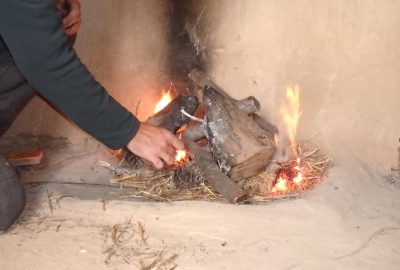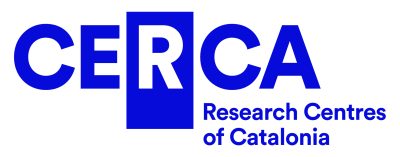
The resolution of the Ministry of Science and Innovation (Spanish Government) regarding the R&D projects for 2023 brought us the good news of being granted three projects, each led by a prominent researcher from the ICAC-CERCA.
The new proposals cover disciplines such as Experimental Archaeology, Archaeobotany, Computational Archaeology, and Archaeometry, promising significant advances in their respective fields of study.
These three projects also stand out for their international collaboration aspect and the knowledge advancement they represent in key areas of research. We are eager to see the first results and contributions that these excellent research teams will achieve in the coming years!
Would you like to know more about them? Below, we present a summary:
Fire and Earth: Exploring Iron Age Combustion Structures in the Western Mediterranean
The TRANSCOMB-2 project, led by Professor ICREA Maria Carme Belarte (MIRMED research group), delves into understanding combustion structures during the Iron Age in the northwest of the Mediterranean. Using an interdisciplinary methodology, the team will analyze hearths and ovens in archaeological sites in the region, providing detailed information on construction processes, functions of the structures, and aspects of daily life. The results will contribute to understanding the organization of domestic groups and be relevant to similar sites in the Mediterranean.
The methodology stands out for the combination of analyzes of remains and materials (using techniques specific to Archaeobotany, Organic Chemistry, and other disciplines) with experimental phases and ethnographic observations, with which the information and hypotheses raised can be contrasted, and obtain new samples for analytical comparisons.
This approach will not only provide detailed information on construction processes and functions but also enhance knowledge of fuel use and natural resource management in daily activities such as food preparation.
The interdisciplinary and experimental approach will lead to several publications in impactful journals across various specialties and offer extensive training opportunities for doctoral researchers. Additionally, the project’s focus on daily life will aid in disseminating results to the general public, connecting current societal concerns with those considered by our ancestors.
M. Carme Belarte‘s team previously explored this theme in the initial phase of the TRANSCOMB project, which ran from 2021 to 2023 and yielded significant results.
- Title: TRANSCOMB-2: Estudio transdisciplinar, experimental y etnoarqueológico de estructuras de combustión de la Edad del Hierro en el Mediterráneo occidental (PID2022-137999NB-I00)
- Leading researcher: Maria Carme Belarte (ICREA-ICAC)
- Research team: Marta Blasco, Marta Mateu, Valentina Pescini, Joan Canela, Jordi Hernández, David Montanero
- Budget: € 106.250,00 + 1 predoctoral contract (€ 111.758,00)
- Timing: 4 years (01/09/2023 – 31/08/2027)

Cereal Cultivation Traces in Ancient Seeds of the Aegean Sea
The DarkAegean project, led by Ramón y Cajal researcher Alexandra Livarda (GIAP research group), explores the innovative hypothesis that the shape of plant seeds reflects their growth conditions.
Building on the success of the DarkRevisited project (which studied the role of barley in ancient agricultural economies), DarkAegean will focus on wheat, another fundamental crop, to provide a more comprehensive understanding of cereal cultivation in the past.
The project’s interdisciplinary methodology includes using geometric morphometrics assisted by machine learning in 3D and stable isotope analysis to correlate specific wheat shapes with particular agricultural management practices.
This innovative methodology will be applied to studying the transition between the Late Bronze Age and the Early Iron Age in the Aegean (Greece), addressing a historically poorly documented period known as the “Dark Ages.”
DarkAegean has the potential to significantly impact the field of Archaeobotany, offering new perspectives on Ancient diets and agricultural economies, while also influencing cultural heritage management and the maintenance of plant biodiversity for food.
- Title: DarkAegean: The agricultural economy of the Aegean Dark Ages through machine learning-powered 3D cereal grain morphometrics (PID2022-139907NB-I00)
- Leading researcher: Alexandra Livarda
- Research team: Michael P. Wallace, Merkouris Georgiadis, Charlotte Diffey, Pagambam Sendash Singh, Toby C. Wilkinson, Federica Riso, Francesc C. Conesa, Patricia Vandorpe.
- Budget: € 100.000,00
- Timing: 3 years (01/09/2023 – 31/08/2026)

Virtual Laboratory for Understanding Roman Trade in Ancient Hispania and its Impact on the Western Mediterranean
Under the direction of Ramon Járrega, senior researcher in the MIRMED research group at ICAC-CERCA, the Amphorae ex Hispania 3 (AExH3) project focuses on the archaeological study of the external trade of products from ancient Hispania through amphorae.
Conceived as the culmination of ten years of work, the proposal aims to study economic vicissitudes and associations in transport and consumption contexts, as well as relationships between production centers and receivers.
The project will focus on ceramic contexts with Hispanic amphorae in the Western Mediterranean, collaborating internationally with researchers from Spain, Portugal, France, and Italy. Objectives include morphological and archaeometric characterization of the figlinae and the study of the diffusion of manufactured products, documenting the specific origin of the amphorae found in reception centers.
The research will be based on data from reference archaeological sites and amphorae from underwater remains, integrating all information into a new database in a virtual laboratory.
AExH3 stands out for its contribution to understanding Roman trade in ancient Hispania and its impact on the Western Mediterranean.
- Title: Amphorae ex Hispania 3 (AExH3): the trade of Hispanic amphorae in the Roman era in the Mediterranean. Amphoric chrono-typology, and relationship between production and reception (PID2022-138200NB-I00).
- Leading researcher: Ramón Járrega
- Research team: Joaquim Tremoleda, Daniel Mateo, Rut Geli, Enric Colom, Giorgio Rizzo, María Rosa Pina
- Budget: € 100.000,00
- Timing: 4 years (01/09/2023 – 31/08/2027)

About the Catalan Institute of Classical Archaeology (ICAC-CERCA)
The Catalan Institute of Classical Archaeology (ICAC-CERCA) is a CERCA center established as a consortium in 2003 by the Government of Catalonia and the Rovira i Virgili University. It is a Catalan institution with an international scope, at the forefront of research and conservation of archaeological heritage. Its headquarters are located in Tarragona, a city recognized as a UNESCO World Heritage Site in the year 2000. Its researchers work to understand the past through the study of archaeological remains and promote the preservation of the historical legacy. We are CERCA!
For more information, visit www.icac.cat.






